#cookslanding
Photo
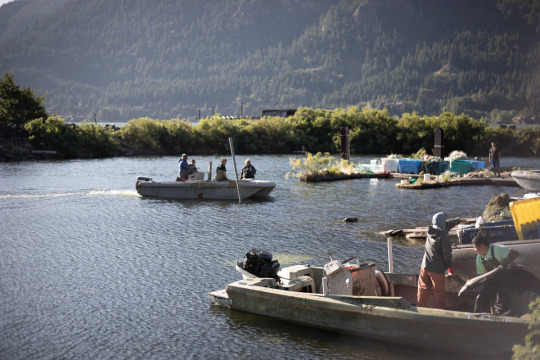
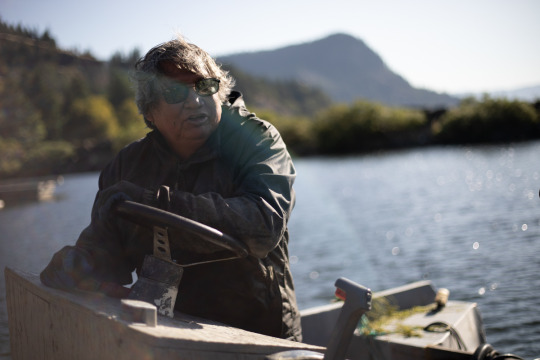
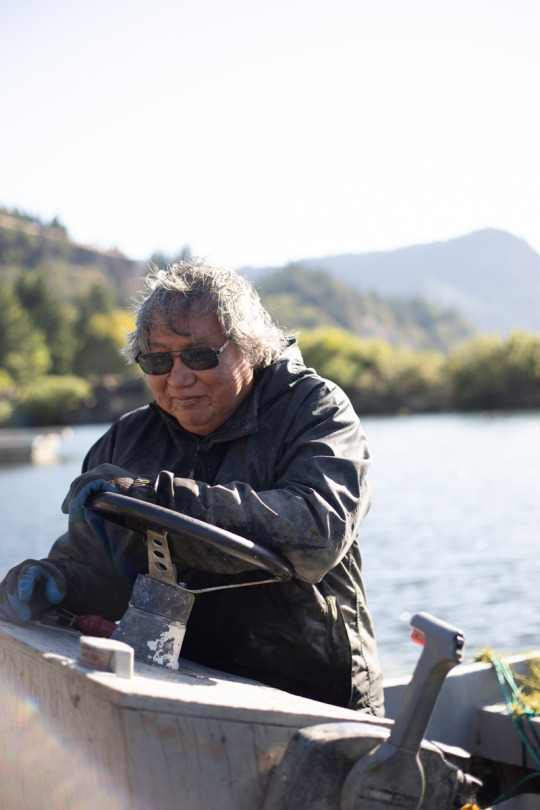
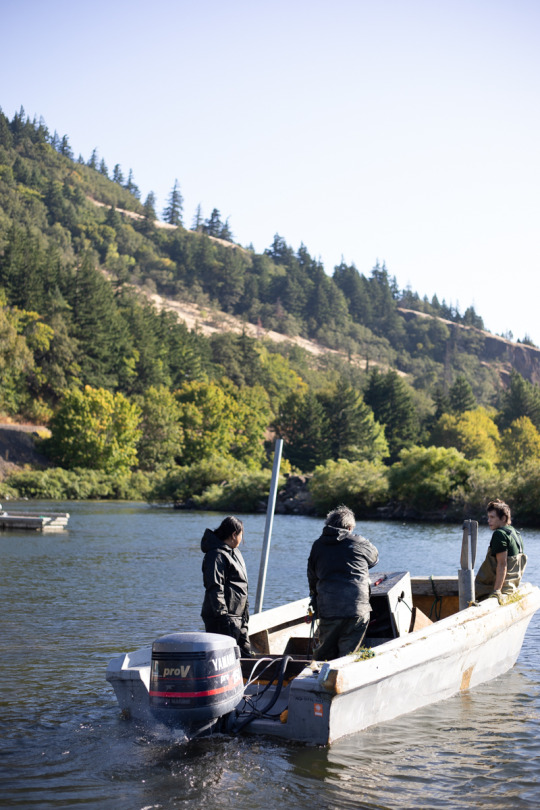
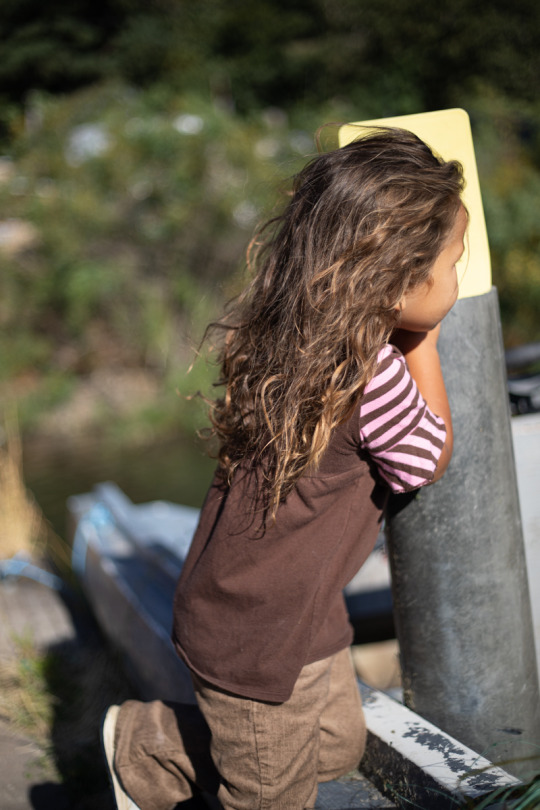
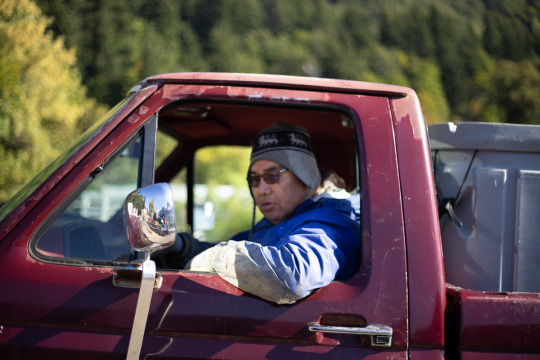
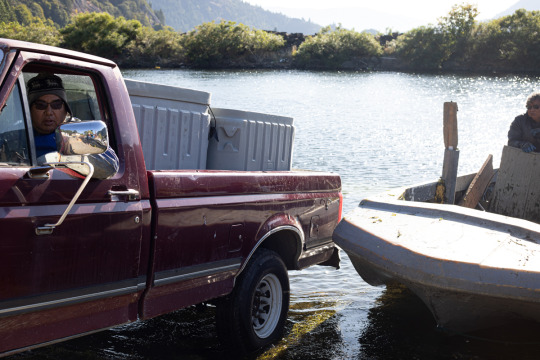
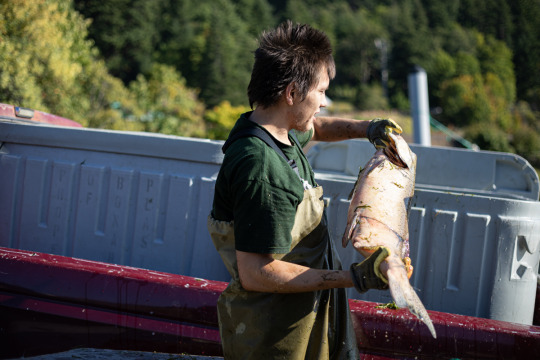

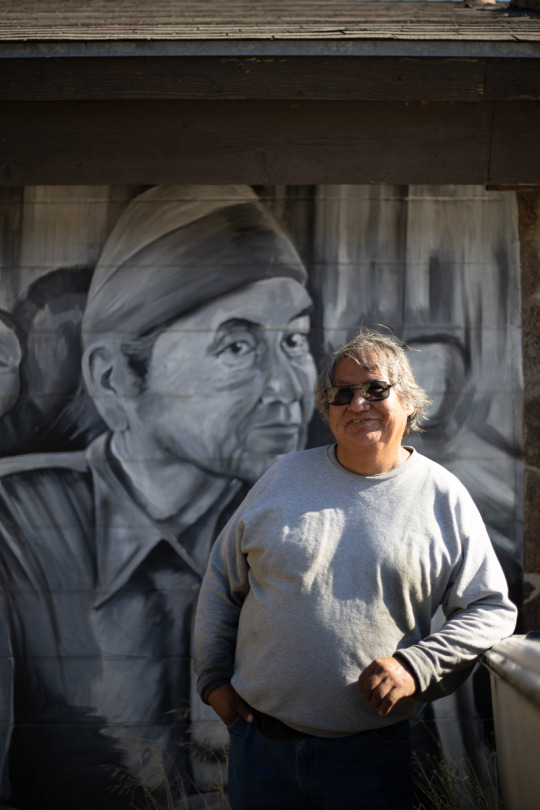
Well, hmmm, yes. These are not Black Portlanders.
On the morning of August 28th I drove out with my sister Kalimah Abioto to Cooks Landing on the Washington side of the Columbia River to meet with Yakama Nation activist, historian, writer, and poet Emily Washines. My goal was to contribute photographs for a piece on Yakama Nation fishing practices and the Sohappy v Smith case.
This week the piece, “Fish Warriors”, was published at Cascadia Magazine. I will leave it to you all to read and engage this history as written by Emily Washines. Please take the time.
An excerpt from “Fish Warriors” as written by Emily Washines ..
“The details of the civil rights struggle for treaty fishing rights, as well as life on the river for tribes today remains little known to many non-native people. For example, the 14 Yakama fishers who went to court in federal fishing cases beginning in 1968 are rarely referenced by name, even when the Columbia River tribes talk about the contemporary fishing rights movement. This year marks the fiftieth anniversary of a complicated court victory involving federal, tribal, and state management of fish. Those 14 fishers were cited for fishing out of the “official” state season at various sites on the Columbia River, including the place we are fishing today.
These are the names of those involved in Sohappy v. Smith: Richard Sohappy, Aleck Sohappy, David Sohappy, Myra Sohappy (David and Andy’s mother), Clara Sohappy, James Alexander, James Alexander. Jr., Leo Alexander, Clifford Alexander, Henry Alexander, Andrew Jackson, Roy Watlamet, Shirley McConville, and Clarence Tahkeal. For the purposes of the case, they are collectively known as the Yakama Fishers, with David Sohappy Sr. also identifying with his Wanapum lineage.
In 1968, the fishers were tired of the state trying to assert authority over treaty fishing rights and so challenged them in an act of civil disobedience. In 1969, a federal court in Oregon ruled in favor of the Yakama fishers and reaffirmed tribes’ treaty rights to fish in the “usual and accustomed places” they had frequented on the Columbia River for millennia.”
... I want to thank Emily Washines and David Sohappy Jr. for being open to having me in this space. I also want to thank the other fishermen and fisherwomen I briefly met, engaged with, and photographed in the few hours I was at Cooks Landing.
I first learned some about the history of the Columbia River Tribes in 2016 through a piece written Molly Harbager at the Oregonian. That story detailed the displacement of the Columbia River Tribes for the Bonneville, Dalles, and John Day dams. To this day the dams generate 40% of the state’s electricity. I was deeply affected by learning this history. I am not from the Pacific Northwest. I’m a Black woman of African descent originally from Memphis TN. Because of, not in spite of my identity and history, it became deeply important to me to figure out some way that I could healthily contribute in ways that might directly be of service, as defined by people coming from Pacific Northwest based Indigenous history and lineage.
I know that storytellers can have power. I know that the person who has the podium, wields the pen, or the camera can wield a power.
For me it became, and still is, a working question of how to healthily contribute to the work, human, and civil rights struggles of communities of which you are not a part and are not directly descended. It’s a question that has also influenced my practice as a Black storyteller from Memphis working and actively researching the histories of Black people in Oregon. How do you contribute your gifts while listening, respecting, and not in practice wielding a power or authority that is not your own? There are so many nuances here to intuit and respect, particularly in communities that have historically been harmed, displaced, those whose cultures, presence, and inherent authority have been purposefully denied. There’s much, in practice, to learn. How do we begin? How do we continue?
I also want to thank Andrew Engelson over at Cascadia Magazine for his support in implementation of this piece. Almost two years ago we connected and I shared with him a passion I had to know more and be a part .. of something. I wasn’t connected with anyone from the Columbia River Tribes, so could not speak to much besides the history I had read and my feeling. I wasn’t sure where to begin. He supported the development of this project at every step and connected us with Emily Washines. Emily brought up the history of the Yakama Fishers, Sohappy v Smith, and the possibility of engaging with David Sohappy Jr. The project progressed from there.
This engagement was new for me, but personally important. I come from Black people and Black women historians, activists, artists, educators, civil rights lawyers, advocates .. for whom it was and is important to self-define, to know deeply one’s power, and to take part in the ongoing creative process of human rights.. human rights struggles, human rights stands. From my heritage, of which I am proud, this is the work. And it remains the foundational basis of my artistic practice and inquiry today. The work/s is/are ongoing. There’s much that I still don’t know about the histories of the Pacific Northwest. Much that I am still learning. These are deep and important histories. This is deep and important present. But I see confluence .. openings.. offerings.
If we are thinking about the history of civil rights movements there are cross sections of history here worth knowing and noting. In 1968, the 14 Yakama Fishers named above were making their stand on the Columbia River or Nch’i-Wàna, as it is known by the Yakama. This is history that everyone in this region and beyond should know. That same year, 1968, Black men, women, and children were making their stand in Memphis during the 1968 Sanitation Workers Strike that brought MLK and others to Memphis. We are 50/51 years out from both of these stands, these occurrences.. and many others that aren’t mentioned here. We should know and celebrate each and all of these contributions. There are many parallels, many stories to tell, and much power, still, through the telling to activate. We should know that the legacy of their contributions are still and yet playing out.. and the power and inspiration inherent to them, is still available to us. History is still being presented in our shared present. We can consider where we stand in these histories and make positive and powerful contributions to the moment. For present consideration, this past October 14th, the Yakama and Lummi Nations called for a takedown of the John Day, Dalles, and Bonneville dams. It’s important to continue to educate ourselves on the history actively being made by, and importantly as told by, the Columbia River tribes and Indigenous Peoples in the Pacific Northwest.
I won’t write more here. Please read Emily Washine’s excellent written work.
In addition on Tue. Dec 3rd, I’ll be joining Emily Washines, David Sohappy Jr., and Cascadia Magazine for a talk and slideshow about Yakama fishing traditions and the 50th anniversary of the Sohappy v Smith ruling at a free event at the Yakama Nation Cultural Center Heritage Theater in Toppenish, WA. The event will also feature a screening of the 1971 short video documentary “Little White Salmon Indian Settlement” by Harry Dawson.
Very best,
Intisar Abioto
#yakamanation#emilywashines#Nch’i-Wàna#yakama#davidsohappy#intisarabioto#cascadiamagazine#washingtonhumanities#cookslanding#columbiariver
10 notes
·
View notes
Photo

Zurich Life Insurance in Cooksland #Zurich #Life #Insurance #in #UK #Cooksland https://t.co/BKNmILyxLN
Zurich Life Insurance in Cooksland #Zurich #Life #Insurance #in #UK #Cooksland https://t.co/BKNmILyxLN
— Best Life Insurance (@ukbestinsurance) February 7, 2020
1 note
·
View note
Photo

Triple Jump Runway Surfaces in Cooksland #Triple #Jump... https://longjumprunwayukk.tumblr.com/post/632329572998840321
0 notes
Photo

Funky Lanyards in Cooksland #Funky #Neck #Straps #Cooksland https://t.co/fuw3UCdM7l
Funky Lanyards in Cooksland #Funky #Neck #Straps #Cooksland https://t.co/fuw3UCdM7l
— Cool Lanyards (@coollanyards) October 7, 2020
0 notes
Link
via Twitter https://twitter.com/achaeologistsuk
0 notes
Link
via Twitter https://twitter.com/hvacengineersuk
0 notes